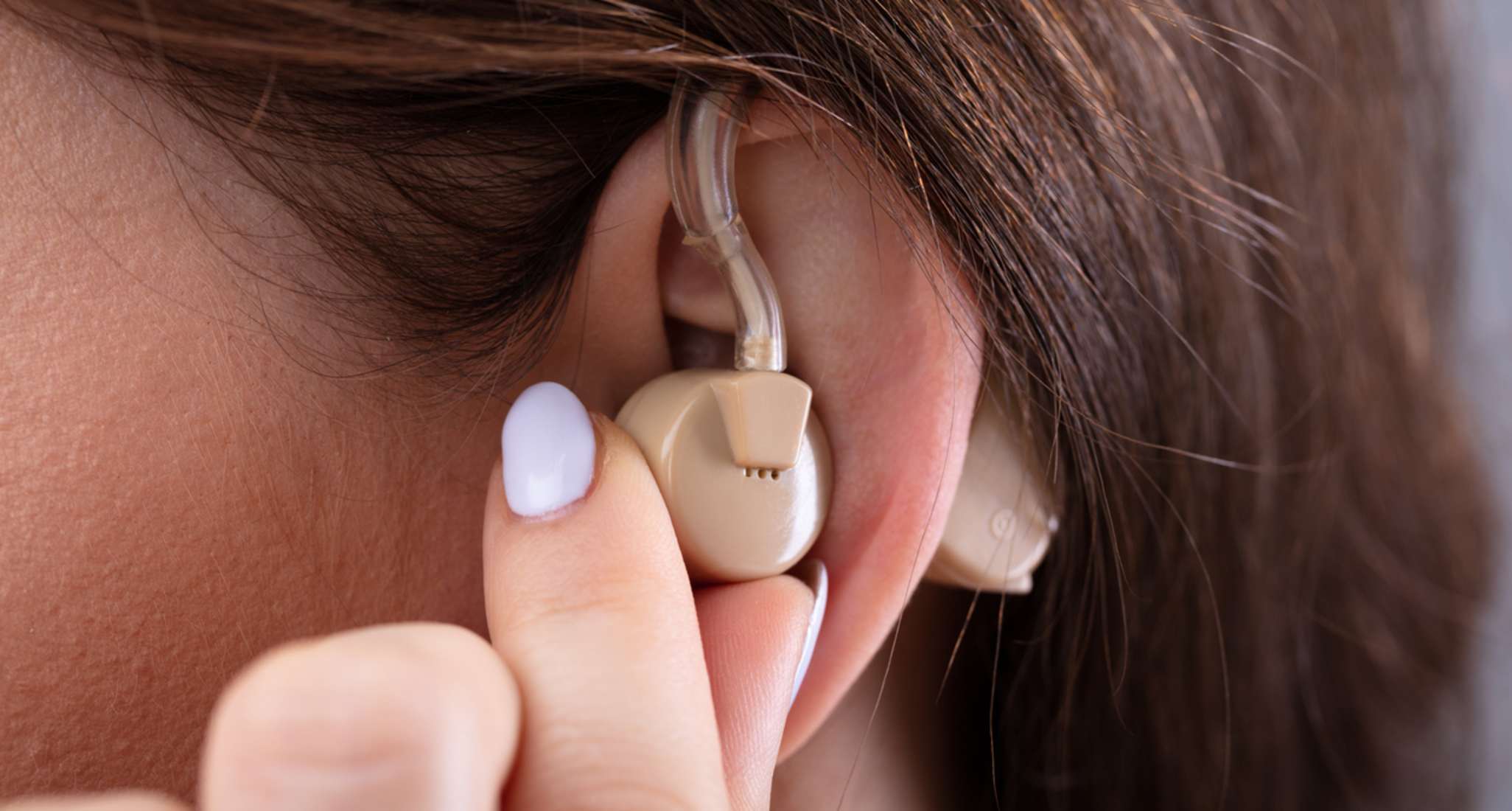Hearing aids: what costs does health insurance cover?
A high-quality hearing aid can help in everyday life, but it is a financial burden. We explain hearing aid prices and the costs covered under health insurance, OASI and disability insurance.

24.09.2025

iStock.com/AndreyPopov
1. How much does a hearing aid cost in Switzerland?
The cost of hearing aids varies greatly from one model to another.
Basic models are usually available for 500 to 1,500 francs per hearing aid. These devices offer you minimum support in the event of hearing loss.
Mid-range models are usually offered for around 1,200 to 2,500 francs per ear. Such models usually have additional functions, such as emphasizing speech or easy directional hearing.
For particularly high-quality models or custom-made devices, you should expect to pay up to 4,500 francs per ear.
2. What do OASI and disability insurance pay for a hearing aid?
People with hearing difficulties are not left to bear the costs alone. As a rule, the first pillar of social security (disability insurance as well as old age and survivors’ insurance or OASI) is responsible for the purchase, care and maintenance of hearing aids. The following conditions apply:
Disability insurance pays a contribution for approved hearing aids, provided that a hearing loss has been medically certified and provision of the device leads to noticeably better comprehension of the environment for the wearer. You can claim this contribution every six years.
Old age and survivors’ insurance (OASI) pays those who have retired a contribution for approved hearing aids, provided that the degree of hearing loss is at least 35%. This contribution may be claimed every five years.
The following table provides an overview of the costs covered under disability insurance and OASI for hearing aids.
| Benefit/cover | Cost contribution under disability insurance | Cost contribution under OASI* |
|---|---|---|
| Single hearing aid | CHF 840 every 6 years** | CHF 630 every 5 years** |
| Hearing aids for both ears | CHF 1,650 every 6 years** | CHF 1,237.50 every 5 years** |
| Battery for a single hearing aid | CHF 40 | CHF 0 |
| Battery for two hearing aids | CHF 80 | CHF 0 |
| Repairs/electronics | Up to CHF 200 (upon submission of a copy of the repair invoice) | CHF 0 |
Source: hearing aids under disability insurance / hearing aids under OASI
* For people of regular OASI age who have already received disability insurance benefits due to a hearing impairment, the protection of vested rights applies. This means that the previous disability insurance benefit standard is retained even after the switch to OASI, as long as the disability insurance requirements continue to be met.
**If a recognized ENT specialist detects a significant change in hearing that justifies an earlier replacement of the hearing aid, you are entitled to a cost contribution before the end of the five or six-year period.
Higher contribution for children’s hearing aids
The cost contribution of disability insurance is higher for minors than for adults. The following cover applies to hearing aids:
CHF 2,830 for a single ear
CHF 4,170 for both ears
As with adults, the cost contribution can be claimed every six years.
A cochlear implant (CI) is an implantable electronic hearing aid for people with severe hearing loss or deafness. The cover is regulated as follows:
In the case of children, disability insurance covers the entire cost of a CI, including follow-up care.
In the case of adults, disability insurance covers the costs of the processor and its adjustment, the annual battery flat rate and hearing training.
Seniors who have not received any disability insurance benefits before regular OASI age receive a 75% cost contribution towards the cochlear implant from OASI. The costs for the adjustment are usually covered by health insurance. The costs of batteries and hearing training are not usually covered.
3. How much does health insurance in Switzerland pay for hearing aids?
Hearing aids are not among the types of aid that are covered by health insurers under basic insurance. This means that, in most cases, basic insurance does not contribute to the purchase of a hearing aid.
Exception: basic insurance contributes to the purchase of a hearing aid if the medical criteria of OASI/disability insurance are met, but the insurance-related requirements are not. These situations usually affect returning Swiss nationals or asylum seekers and are rare.
4. Is it worth taking out supplemental insurance in case of hearing difficulties?
The OASI allowance of 630 francs is intended to cover 75% of the costs for a simple and practical hearing aid, including adjustment and maintenance. If this coverage is not sufficient for the hearing aid you want, supplemental insurance may be worthwhile.
Supplemental insurance often provides cover for financing the remaining costs of medically prescribed aids. However, it only pays up to a certain percentage and a maximum amount.
It’s worth comparing
There is a wide range of supplemental outpatient insurance policies available. The cover packages and the effective compensation for aids including hearing aids vary greatly. Closely compare the benefits and premiums.
5. When do I need a hearing aid?
A hearing aid is recommended if your hearing has deteriorated noticeably. This is usually the case from a hearing loss of about 40 to 60 decibels or in the event of everyday difficulties in comprehension. Typical signs that you need a hearing aid include:
You often ask people to repeat themselves.
You have difficulty understanding speech in noisy environments (e.g. in a restaurant).
You regularly have to increase the volume of the TV or radio.
You feel that others speak unclearly.
You withdraw from social situations.
Don’t wait too long
If you have any of these symptoms, it is recommended that you have a hearing test with an ENT doctor. Hearing loss can severely limit quality of life and even increase the risk of dementia. Early use of hearing aids can prevent further hearing loss.
This article was first published on 09.12.2021



